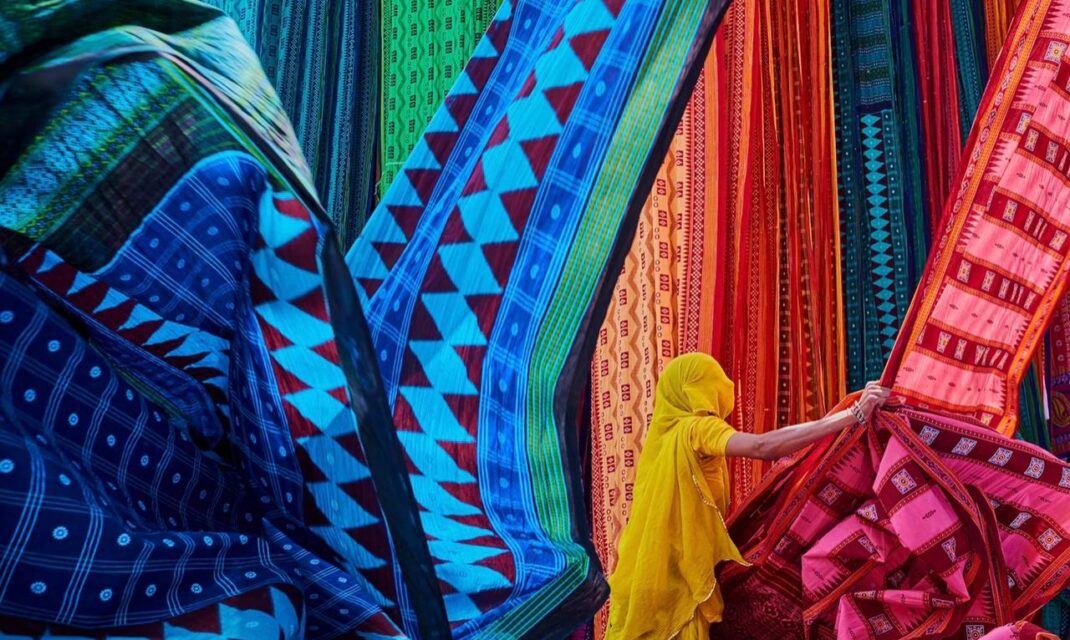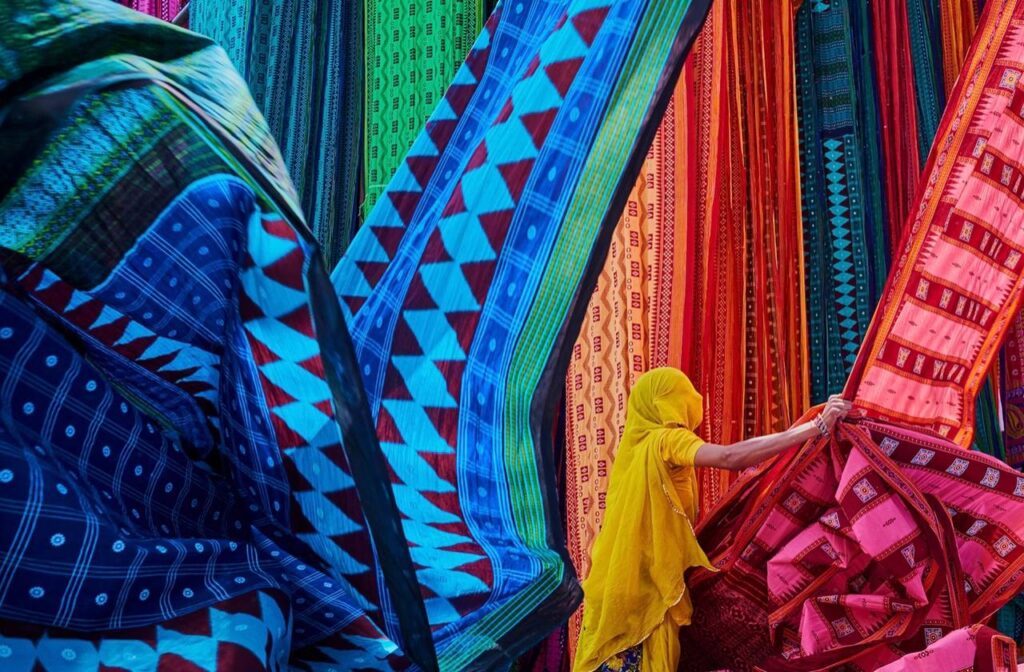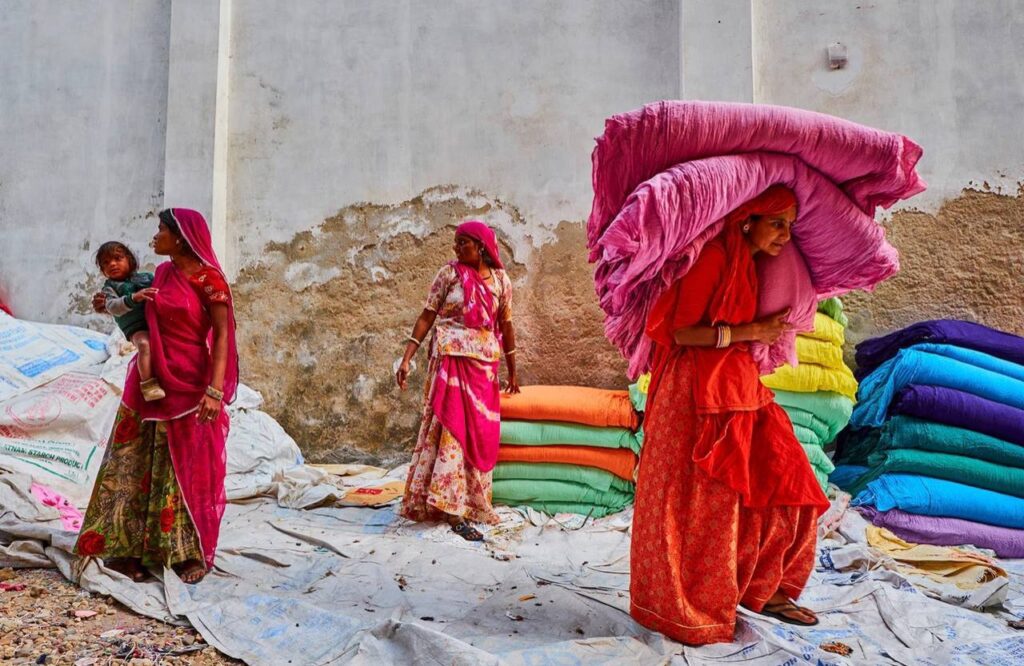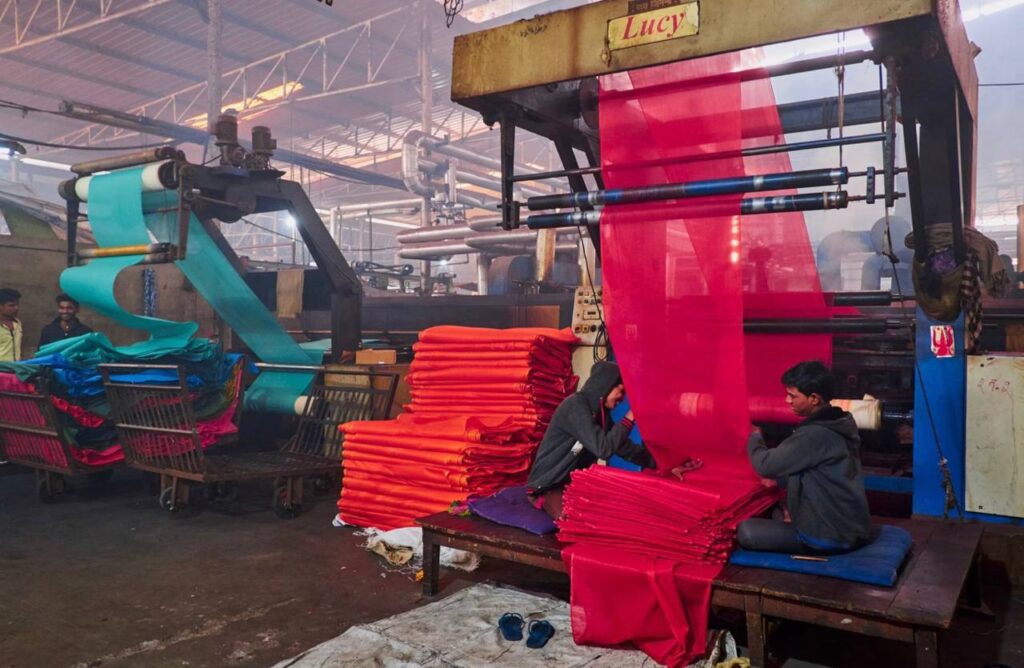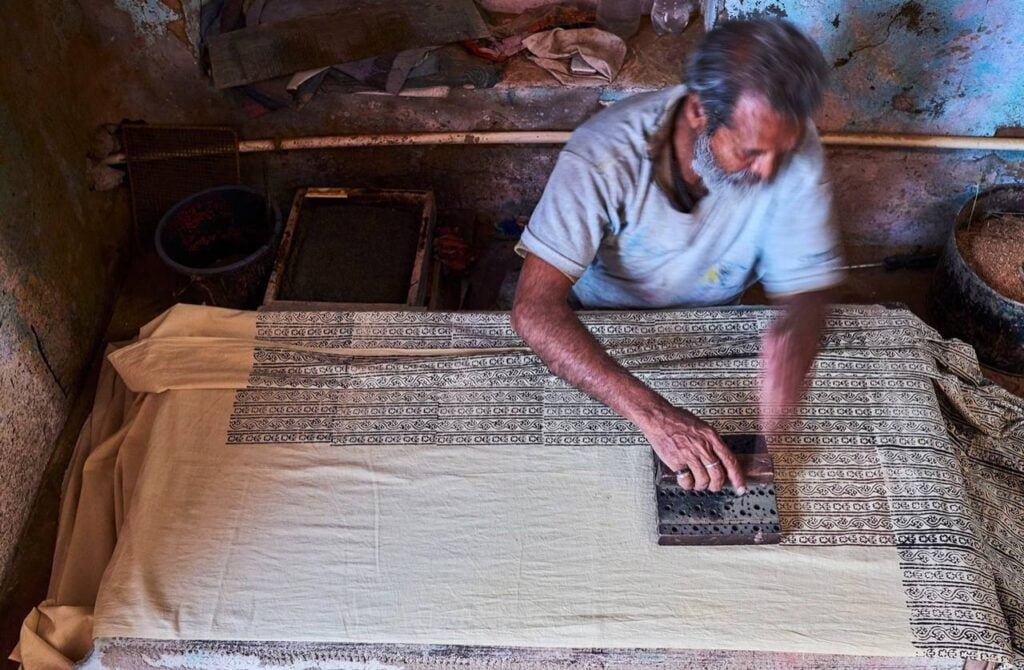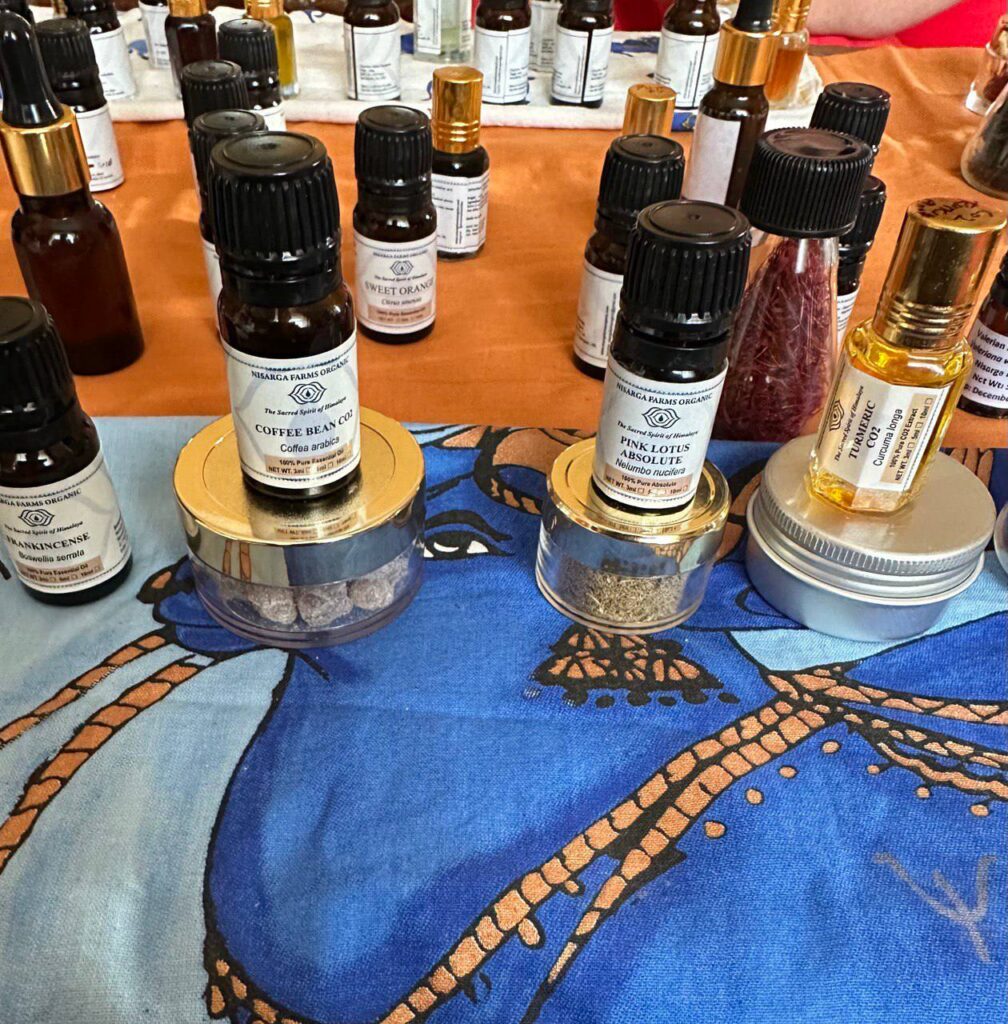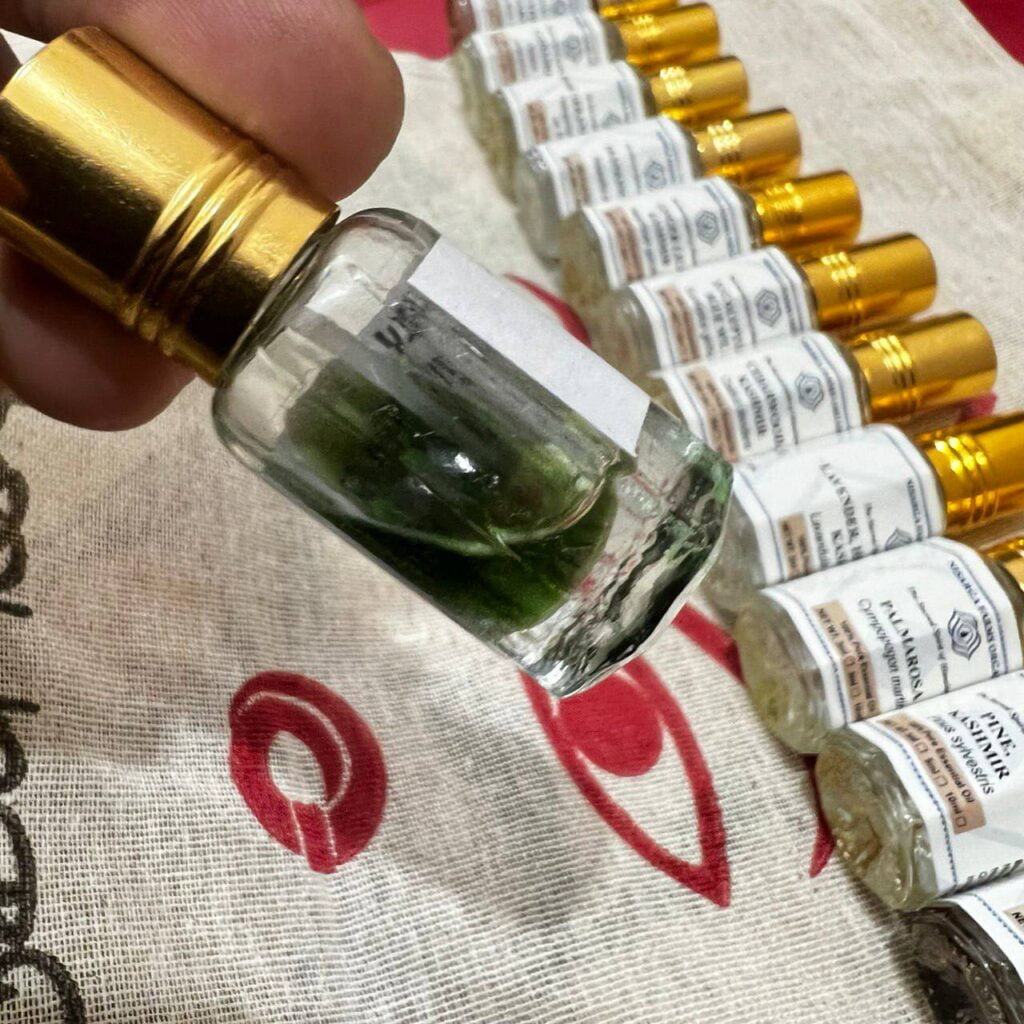The word “sari” in Sanskrit means “strip of cloth” and had been used by men and women both. These days Sari or Saree means “beautiful, colorful and synergetic Indian women’s traditional cloth”. This long cloth can be cotton, silk or linen. Such a cloth is still used by men (with different name i.e. Dhoti) and women (Sari) in India in home and many wear it in daily life or social activities. Many use it for meditation too.
Saree is born out of deep natural philosophy that how a cloth can be used in most beautiful way without (or with minimum) stitching it. Because the more a cloth is stitched, the more curves and cutting has to be given to that cloth which further affects the “prana” energy flow of the body.
The prana in the body is needed for peace as well energy.
To feel energetic is one thing, to feel peaceful and blissful mentally and energetic both is different thing.
The focus in Eastern Ayurveda Aromatherapy has been on energy and peace both since ancient times through aroma, oils and aroma-meditation.
That is why sari remains the most favourable cloth for Indian women, and men too.
Men do not wear sari, but many men use a similar long cloth called Dhoti or Shawl or Sheet in India, especially meditators.
To enhance the Prana in the “sari”, since ancient India woven saris and lined were naturally scented patchouli leaves because patchouli enhances the prana energy, make you feel very stable and peaceful. British colonizers were fascinated by such a deep philosophy in a cloth and they traded patchouli scented linen in Britain in 1800s, and slowly the Patchouli became the source of inspiration which further shaped the modern aromatherapy in Europe and the whole world. Patchouli in Indian language means “Green Scented Leaf”. Many people say that it means green leaf, but it is not correct. It means green scented leaf. I do not know how many of you have smelled a good quality of patchouli leaf! I often carry dried patchouli leaf from our farm, and show to people in the meeting. When a person smells the oil then it is one thing, and one I show them dries leaves with a very elegant, rich and smoky aroma then they really love it more. Often, I share this ancient wisdom of the Ayurveda Aromatherapy to people how traditionally patchouli has been used and spread from India to west.
Whenever I travel, I always carry such a long piece of cloth with me. Many of you might have noticed in meetings that I carry silk, cotton and linen red, orange, black with golden strips and similar clothes. Please see the photos below.
I can pack my oils easily in some wooden box, or some expensive box, but this will suffocate the oils. That is why I avoid carrying oils in the box (unless needed) because aliveness of oils is maintained through such ‘sari’.
I use them to naturally scent the men’s sari (also called Dhoti), and also increase the prana flow during meditation. The good thing is that it can be washed, and used for specific spiritual purpose.
Traditions are born, traditions are revived, and traditions are forgotten or ignored.
Eastern Ayurveda Aromatherapy is one of the biggest attempts in India as well as globally to educate people about the hidden or ignored traditions of the East.
We give special education in Aroma Meditation and Ayurveda Aromatherapy Module-1, 46 Oils- In Recorded form as well as online. Next course will be offered in September 2024.
Our upcoming webinar on Attars and Therapeutic Use is on 17th of March.
Those who have not registered yet please contact us on email mysorearomatherapy@gmail.com
Sari Photo credit National Geographic
Other Photos- Nisarga Farms Organic and Krishana.
Written by Krishana Chaitanya & MSA Team.
Instagram: @aromatherapist_krishana
To learn in depth about 46 oils of Ayurveda Aromatherapy click the below link
mysoreschoolofaromatherapy.com/ayurveda-aromatherapy-foundation-course-level-1-english


